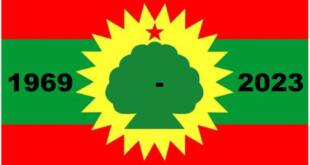When considering which U.S. political party may be more beneficial for the Ethiopian government and its people, both the Democratic and Republican parties present distinct approaches that could significantly impact Ethiopia’s future.
Democratic Party
The Democratic Party, particularly under a potential Kamala Harris administration, is likely to continue the foreign policy approach established during the Biden administration, which emphasizes diplomacy, human rights, and strategic alliances. This focus could lead to a more supportive stance towards democratic reforms and human rights in Ethiopia, especially given the historical context of U.S.-Ethiopia relations. Harris’s administration may prioritize engagement with Ethiopian civil society and advocate for accountability regarding human rights abuses, which resonates with the concerns of many Ethiopian Americans and activists advocating for democracy in Ethiopia
12.Moreover, under Democratic leadership, there is a possibility of reinstating Ethiopia’s eligibility for the African Growth and Opportunity Act (AGOA), which had been suspended due to human rights violations during the Tigray conflict. This reinstatement could provide significant economic benefits to Ethiopia by allowing tariff-free access to U.S. markets, potentially revitalizing sectors like textiles that have suffered from job losses due to this suspension4.
Republican Party
Conversely, a Republican administration led by Donald Trump could shift U.S. policy towards Ethiopia in a manner that prioritizes security cooperation and economic interests over human rights advocacy. Trump’s previous administration demonstrated a tendency to favor personal relationships with foreign leaders, which may not align with promoting democratic governance in Ethiopia. His administration’s past support for Egypt in the Grand Ethiopian Renaissance Dam (GERD) dispute raised concerns about U.S. neutrality in regional conflicts affecting Ethiopia
13.While Trump’s policies may enhance military and security cooperation, they could simultaneously undermine support for democratic movements within Ethiopia. This approach might lead to less engagement with civil society groups advocating for human rights and democratic reforms, potentially stifling progress in these areas12.
Conclusion
In summary, while both parties have their pros and cons regarding U.S.-Ethiopia relations, the Democratic Party appears more aligned with the aspirations of those advocating for democracy and human rights within Ethiopia. Their potential policies could foster economic growth through trade agreements like AGOA while supporting civil society initiatives aimed at promoting governance reforms. On the other hand, a Republican administration might prioritize strategic alliances and security cooperation at the expense of democratic values, which could have long-term implications for Ethiopia’s political landscape.Ultimately, the choice between these parties will significantly influence not only U.S.-Ethiopia relations but also the broader trajectory of democracy and human rights within Ethiopia itself.
Share
Rewrite
Related





